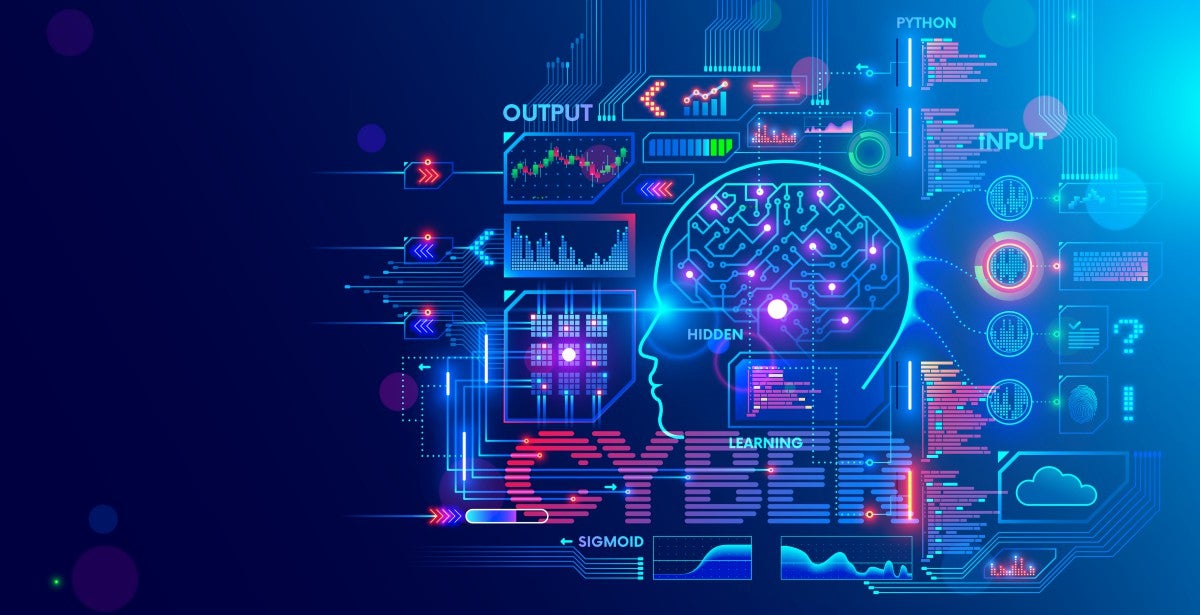Top 10 Cyber Security Tools

In an IEEE survey, CIOs and IT Director's who were surveyed said that cloud vulnerability, mobile and hybrid workforce, and data center vulnerability were their top concerns in 2023. This means that analysts who know how to best leverage cyber security tools are in high demand. In fact, the U.S. News & World Report ranked “Information Security Analyst” as the number five job in their 100 Best Jobs list for 2023.
Information analyst professionals with skills in specific cyber security tools are invaluable in today’s job market. Consider some of the top programming languages and tools used by cyber security analysts to protect everything from individual, private data to the proprietary information of Fortune 500 Companies.
10 Tools Used by Cyber Security Analysts
As cyberattacks increase, companies are turning to a plethora of cyber security tools to protect their enterprises. In fact, the Panaseer 2022 Security Leaders Peer Report revealed that security teams at large corporations now oversee an average of 76 security tools for their companies.
Here is a summary of ten of the cyber security tools that companies, their leaders, and information security analysts use on a regular basis to keep data, information, and people safe.
Table of Contents
- 1. Kali Linux
- 2. Python
- 3.Wireshark
- 4. Selenium
- 5. Beautiful Soup
- 6. Ubuntu
- 7. AWS
- 8. Pandas
- 9. Colab
- 10. NumPy
1. Kali Linux
Kali Linux is widely considered to be the most advanced penetration testing platform available. Offering accessible customization, specialized builds, and 32-bit, 64-bit, and ARM options, Kali Linux is a go-to platform for cyber security analysts.
Additional Kali Linux features include:
- Kali NetHunter: built for Android devices, Kali NetHunter performs mobile penetration tests.
- Kali Everywhere: a range of Kali versions that can be used anywhere a cyber security professional needs it, including ARM, Amazon Web Services, Azure Bare Metal, Docker, bare metal, and Windows Subsystem for Linux.
- Kali Undercover: a set of scripts that changes the look and feel of your Kali Linux desktop environment to a Windows 10 desktop environment.
2. Python
Python is an open-source, easy-to-learn, high-level programming language with a wide range of uses for cyber security.
Some of the primary ways that cyber security analysts use Python include:
- Malware analysis: Python tools like YARA identify, classify, and analyze malware samples.
- Simplified debugging: the ease of use and readability of Python means that users can more simply debug code.
- Extensive library: Python features a vast library of cyber security tools that professionals can access quickly.
3. Wireshark
Wireshark analyzes network protocols and network security. This cyber security tool assesses vulnerabilities by combing through network traffic data. Wireshark is free, open-source, and useful for capturing and investigating data packets.
Additional benefits of Wireshark include:
- Network troubleshooting: Wireshark investigates network issues like insufficient performance, timeouts, and protocol problems.
- Multi-platform: Wireshark can be used on Windows, UNIX, Mac, Linux and many others.
- Visualization: after capturing and filtering a data packet, Wireshark allows users to visualize conversations and network streams.
4. Selenium
Selenium is a suite of tools for automating web browsers. It is an open-source software that supports several programming languages, multiple operating systems, and various browsers. Users cite speed, performance, and cross-device testing as positive features of Selenium.
Additional benefits of Selenium include:
- Selenium WebDriver: A collection of language-specific bindings that remotely or locally drives a browser.
- Selenium Grid: This tool reduces the time it takes to run tests by allowing them to run on different browsers and operating systems simultaneously.
- Selenium IDE: Selenium IDE records website interactions and generates and maintains site automation.

5.Beautiful Soup
Beautiful Soup is a Python library that is used to pull data out of HTML and XML files. This tool makes the process of scraping information from web pages easy. Beautiful Soup provides Pythonic idioms so that users can iterate, search, and modify the parse tree.
Additional Beautiful Soup features include:
- Ease of use: Simple, straightforward approach that users say is beginner-friendly.
- Speed: Beautiful Soup works quickly without sacrificing quality.
- Leniency: As of Python 3.2, BeautifulSoup is considered to be very lenient.
6. Ubuntu
Ubuntu is the world’s most widely used Linux workstation platform. Featuring free, open-source software, Ubuntu runs on the enterprise server, cloud, desktop, and Internet of Things. Ubuntu is known for its community and user support.
Additional benefits of Ubuntu include:
- Security: Ubuntu features a built-in Firewall and virus protection method that produces excellent safety results.
- Supportive community: One of the biggest advantages of Ubuntu is its strong community and customer support.
- Personal Package Archives: PPAs give any user the ability to host a software repository and perform regular software updates.
7. AWS
AWS, which stands for Amazon Web Services, is a suite of cloud computing services. As a comprehensive platform, AWS offers infrastructure as a service (IaaS), platform as a service (PaaS), and software as a service (SaaS) features. The platform’s services include servers, remote computing, storage, and much more.
Additional benefits of AWS include:
- Flexibility: AWS accommodates various operating systems, programming languages, web application platforms, and databases.
- Cost-effectiveness: Users only pay for what they use and are not obligated to long-term contracts.
- Scalability: AWS tools like Auto Scaling and Elastic Load Balancing empower companies to scale up or down based on their needs.
8. Pandas
Pandas is a Python library that analyzes data. An open-source tool, Pandas is flexible and allows users to manipulate the data they are analyzing. Users comment that Pandas is easy to use and works well with both relational and labeled data.
Additional benefits of Pandas include:
- Data representation: Pandas presents data in streamlined, simplified ways for easier analysis.
- Efficiency: users spend less time writing code and more time accomplishing tasks.
- Features: Pandas offers a large catalog of features and commands.
9. Colab
Colab, the shorthand for Google Colaboratory, is a Google Research product. As a free Jupyter notebook environment that is entirely cloud-based, Colab enables any user to write and execute arbitrary Python code. Colab does not require a setup, supports bash commands, and features free GPU acceleration.
Additional benefits of Colab include:
- Pre-installed libraries: All major Python libraries including TensorFlow, Scikit-learn, and Matplotlib are pre-installed.
- Built for teams: Notebooks can be simultaneously edited by team members, like Google Docs, Google Sheets, etc.
- Code snippets: Colab features many useful snippets of code that are easy to import into a notebook, and allows users to add custom snippets.
10. NumPy
NumPy, which stands for Numerical Python, is a scientific computing package for Python. As a general-purpose, array-processing package, NumPy is useful for mathematical operations, efficient calculations, and high-level numerical functions. The NumPy library is often used in Machine Learning and when working with tabular data.
Additional benefits of NumPy include:
- Saving memory: NumPy arrays use less memory than Python lists.
- Optimization: NumPy has a mechanism for specifying data types so that users can further optimize the code they are writing.
- Powerful slicing: NumPy can implement user intentions and perform multidimensional slicing in ways that other tools cannot.

Learn In-Demand Cyber Security Skills with SBU’s Cutting-Edge Master of Science in Cybersecurity
Do you want to master cyber security tools and keep data, information, and organizations safe from attacks? You can hone your skills and prepare to move into senior leadership roles with St. Bonaventure University’s online Master of Science in Cybersecurity program.
With no GRE/GMAT requirement, 100% online coursework, and the opportunity to graduate in as few as 18 months, our online MS in Cybersecurity is ideal for professionals who are ready to enhance their job prospects and take their careers to the next level.
During our online Master’s in Cybersecurity program, you will:
- Learn best practices and techniques in cloud security, machine learning, AI, secure software design, networking, data mining, penetration testing and more.
- Train for global cyber security practice in real-time through partnerships with Amazon Web Services (AWS) Academy, the EC-Council and Cisco Academy.
- Prepare for certifications including Certified Information Systems Security Professional (CISSP), AWS Solution Architect - Associate, AWS Security Specialty, Certified Ethical Hacker (CEH), Certified Network Defender (CND), Cisco CCNA - CyberOps, Cisco CCNA, and CCNP Security.
Step into a bright future — learn more about our online MS in Cybersecurity.
